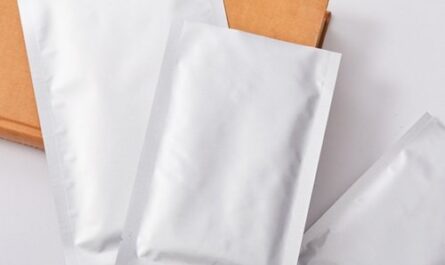Introduction to Molded Fiber Pulp
Molded fiber pulp, also known as molded pulp or molded fiber, is a packaging material made by pressing pulp from recycled paper and other plant fibers into 3D forms using molds. It provides an affordable and sustainable alternative to thermoformed plastic packaging. The molded pulp is generally dried and finished to give it strength comparable to plastic or expanded polystyrene (EPS) without using harsh chemicals.
Composition and Manufacturing Process
Molded pulp packaging is manufactured using recycled fibers from materials such as newspapers, magazines, and cardboard. These fibers are mixed with water to create a slurry that is dewatered and processed into a mat using screens and presses. The mats are then vacuum-formed or pressed into molds designed as per the product shape and allowed to naturally air dry. Once sufficiently dried, the molded packaging pieces are finished, sometimes with the addition of lightweight coatings, to impart strength, grease resistance and other protective qualities.
Environmental Advantages over Traditional Packaging
Being made almost entirely from recycled waste paper, Molded Fiber Pulp Packaging offers significant environmental benefits compared to plastic and foam packaging:
Biodegradable and Compostable Nature
Molded Fiber Pulp Packaging completely biodegrades in 8-10 weeks when composted. This eliminates the need for landfilling or long-term waste storage. Conventional plastic and foam packaging, on the other hand, persist in landfills and environment for centuries.
Reduced Carbon Footprint
Its production involves lower energy usage compared to plastic blowing or injection molding processes. Transportation emissions are decreased due to molded pulp’s lightweight quality.
Renewable and Recyclable Material
Molded pulp is manufactured using renewable plant fibers as opposed to non-renewable oil resources used in plastics. Empty containers can also be recycled back into the pulp manufacturing process.
Applications in Packaging and Shipping
Some key applications where molded fiber pulp has replaced plastic include:
Egg Cartons – Fully compostable molded pulp cartons are now widely used for packaging and transporting eggs.
Electronics Packaging – Used for internal cushioning and boxing of items like phones, tablets and small appliances during shipping.
Food Service Containers – Produces clamshell and tubs for takeout salads, bakery items, fruits and more.
Automotive Packaging – Interior liners, pads and loose fill provide energy absorption for shipping vehicle components.
Shipping and Distribution Packaging – Ideal as boxes, end caps, corner boards and separators for multi-product retail pallets and crates.
Future Outlook and Developments
With growing ecological consciousness, the molded fiber packaging market is projected to expand significantly in the coming years. Manufacturers are focusing on product customization, improved strength and moisture resistance through advanced pulping techniques. New materials like flower fibers and agricultural residues are also being explored to diversify the feedstock base even further. With continued technological progress, molded pulp has the potential to displace a major share of thermoformed plastics in the packaging industry worldwide.
*Note:
1. Source: Coherent Market Insights, Public sources, Desk research
2. We have leveraged AI tools to mine information and compile it.
About Author - Priya Pandey
Priya Pandey is a dynamic and passionate editor with over three years of expertise in content editing and proofreading. Holding a bachelor's degree in biotechnology, Priya has a knack for making the content engaging. Her diverse portfolio includes editing documents across different industries, including food and beverages, information and technology, healthcare, chemical and materials, etc. Priya's meticulous attention to detail and commitment to excellence make her an invaluable asset in the world of content creation and refinement. LinkedIn Profile

 by
by 


